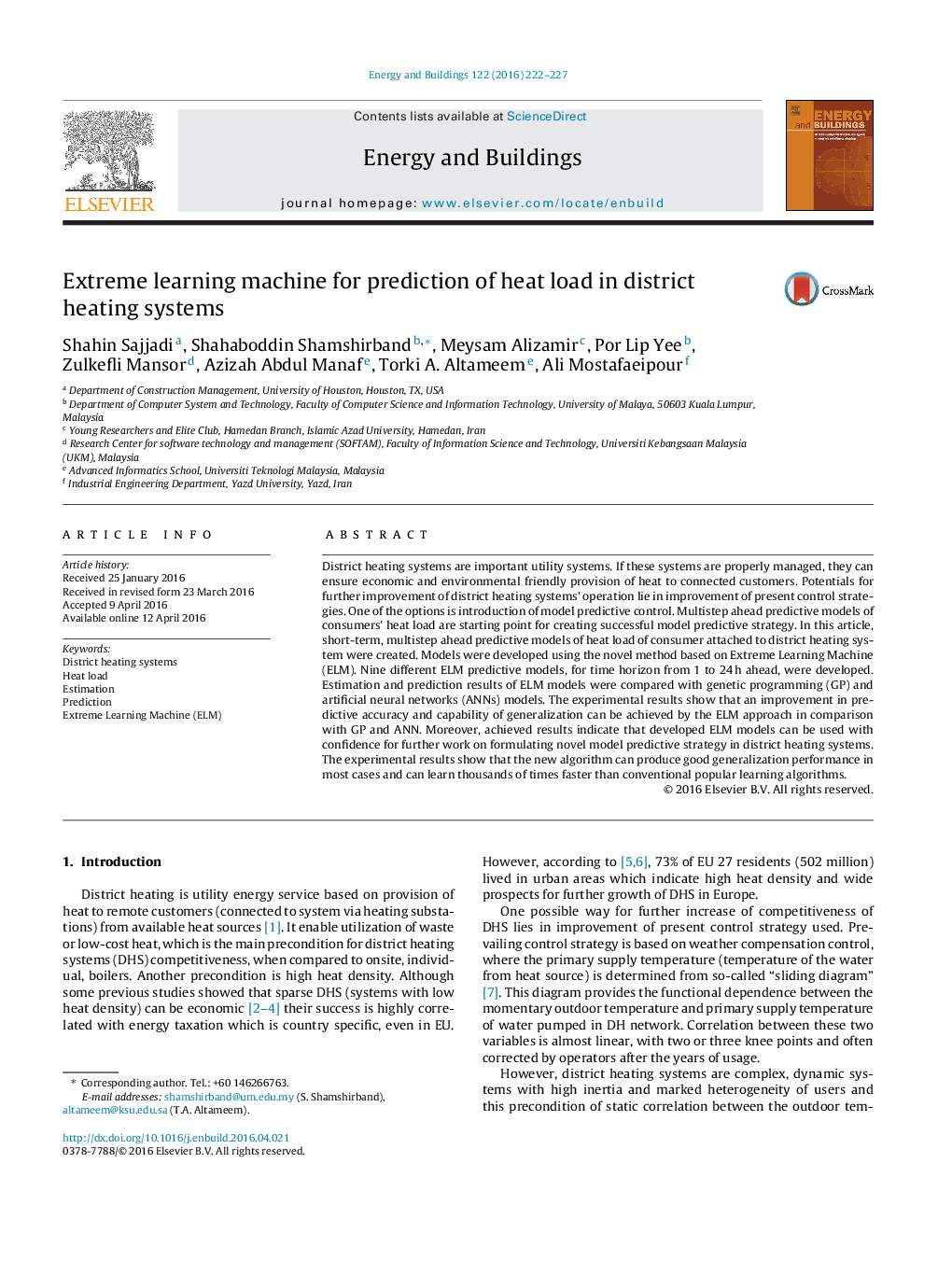| کد مقاله | کد نشریه | سال انتشار | مقاله انگلیسی | نسخه تمام متن |
|---|---|---|---|---|
| 262080 | 504009 | 2016 | 6 صفحه PDF | دانلود رایگان |
• District heating systems for increase in fuel efficiency.
• Control and prediction future improvement of district heating systems operation.
• To predict the heat load for individual consumers in district heating systems.
• A process which simulates the head load conditions.
• Soft computing methodologies.
District heating systems are important utility systems. If these systems are properly managed, they can ensure economic and environmental friendly provision of heat to connected customers. Potentials for further improvement of district heating systems’ operation lie in improvement of present control strategies. One of the options is introduction of model predictive control. Multistep ahead predictive models of consumers’ heat load are starting point for creating successful model predictive strategy. In this article, short-term, multistep ahead predictive models of heat load of consumer attached to district heating system were created. Models were developed using the novel method based on Extreme Learning Machine (ELM). Nine different ELM predictive models, for time horizon from 1 to 24 h ahead, were developed. Estimation and prediction results of ELM models were compared with genetic programming (GP) and artificial neural networks (ANNs) models. The experimental results show that an improvement in predictive accuracy and capability of generalization can be achieved by the ELM approach in comparison with GP and ANN. Moreover, achieved results indicate that developed ELM models can be used with confidence for further work on formulating novel model predictive strategy in district heating systems. The experimental results show that the new algorithm can produce good generalization performance in most cases and can learn thousands of times faster than conventional popular learning algorithms.
Journal: Energy and Buildings - Volume 122, 15 June 2016, Pages 222–227
